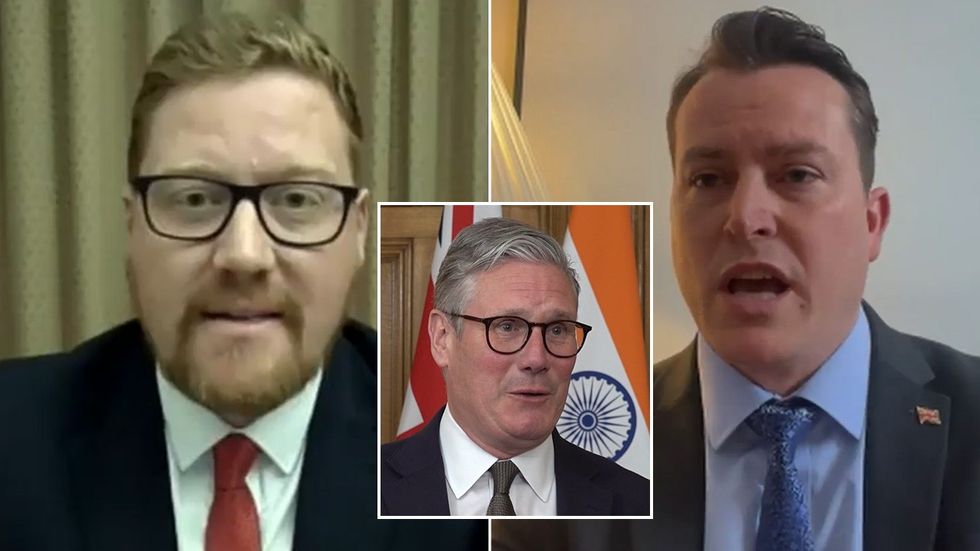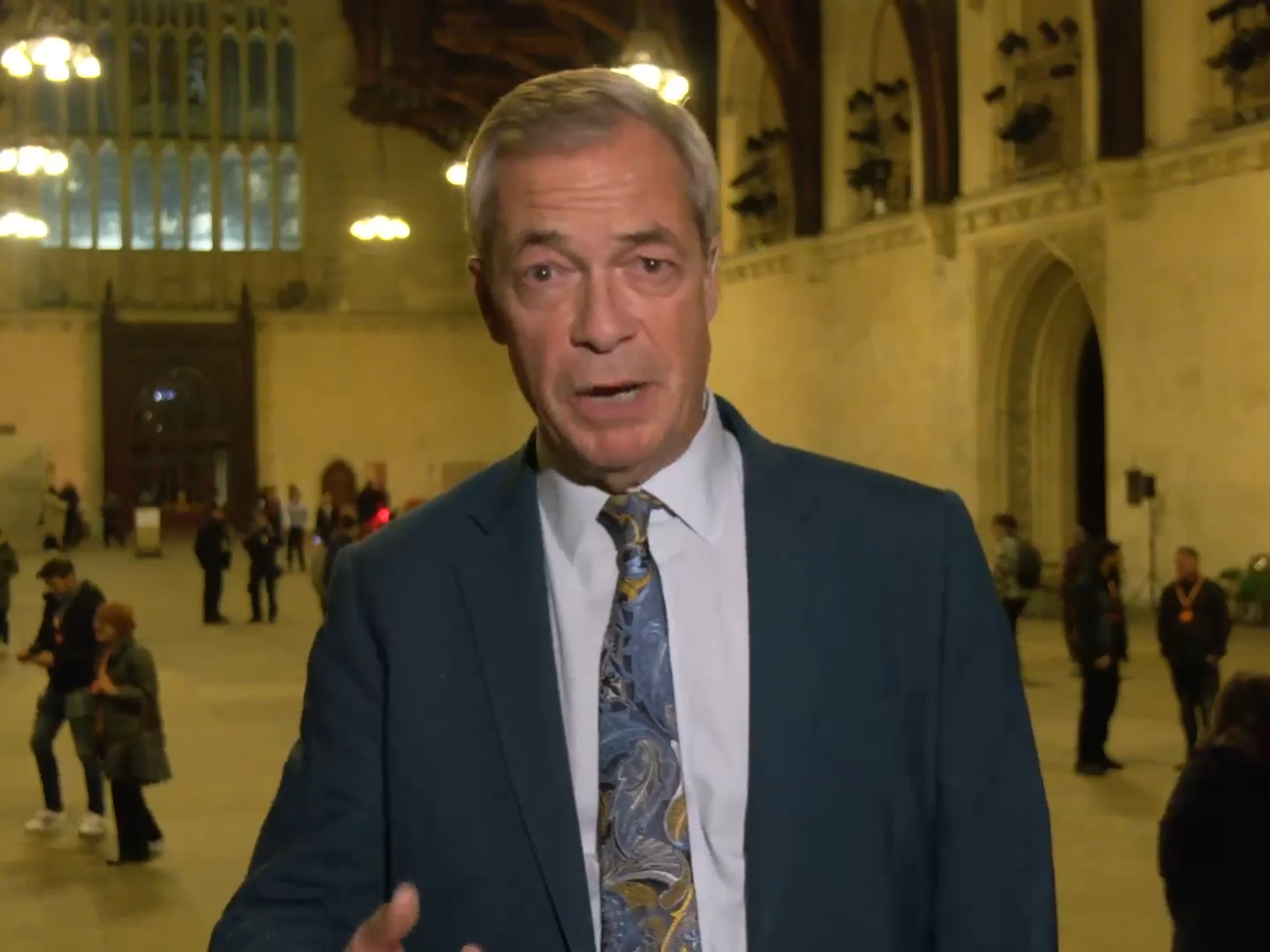'It's a two-tier tax system!' Labour's India trade deal sparks fiery on-air row as Reform MP blasts 'win for Indian companies'

Keir Starmer hailed the 'landmark' deal between Britain and India, claiming it will put 'more money in working people's pockets'
Don't Miss
Most Read
The Prime Minister has sparked a fiery row over his latest "two-tier" move, after being accused of undercutting British workers to seal a £5billion trade deal with India.
Under the agreement, potentially tens of thousands of Indian workers on short-term visas will be completely exempt from paying National Insurance in Britain for three years, making them potentially cheaper to hire - despite National Insurance contributions for British firms being increased in last year's Budget.
Hailing the deal, Starmer said: "Today we have agreed a landmark deal with India - one of the fastest growing economies in the world, which will grow the economy and deliver for British people and business.
"Strengthening our alliances and reducing trade barriers with economies around the world is part of our Plan for Change to deliver a stronger and more secure economy here at home."

James McMurdock and Jonathan Brash clashed over Labour's latest trade deal with India
|GB News / Pool
Discussing the deal on GB News, Reform UK MP James McMurdock hit out at Starmer for signing a "two-tier tax system" deal with India.
McMurdock explained: "This is a new trade agreement and it was our opportunity to set the terms. Even the Conservative government, which had done appallingly, had the good sense not to sign it, but unfortunately Keir Starmer has.
"So we are looking at a two-tier tax system. What we're completely overlooking is the fact that the pension contribution is included within the NI for the Indian employees where it is not for the UK. So even if you want to play games with how the NI is calculated, actually there's around a 10 per cent saving just in the pensions alone. So that's a very significant factor."
Hitting back at McMurdock, Labour MP Jonathan Brash said Reform are "attaching two-tier to everything".
LATEST DEVELOPMENTS:
 Business and Trade Secretary, Jonathan Reynolds, welcomes Indian Minister of Commerce and Industry, Piyush Goyal, to London for trade talks | Flickr
Business and Trade Secretary, Jonathan Reynolds, welcomes Indian Minister of Commerce and Industry, Piyush Goyal, to London for trade talks | FlickrBrash stated: "This is the problem. You can't just attach the words 'two-tier' to everything and call it a policy. The trade deal, if you look at the detail, increases British firms exports by 60 per cent. That is good for British business, and it's good for British workers.
"Trying to attach 'two-tier' to everything and calling it a policy is not going to get you very far."
When pressed by host Emily Carver on whether the deal will increase immigration numbers of those coming from India to the UK, Brash claimed that it will have "no impact whatsoever".
Brash told GB News: "If the Home Office does not like the number of people coming across from any particular country, they can simply put a cap on."
Emily then interjected, stating: "Hang on - Indians are now able to apply for 33 different work sectors via the Global Business Mobility Visa, up from 15?"

James McMurdock said details of the agreement are 'concerning' and have been 'overlooked'
|GB News
Taking aim at Reform UK, Brash responded: "It's the Home Office's duty to deal with immigration - this has nothing to do with immigration.
"What's underpinning this is the complete misinformation. All you hear from Reform is 'two-tier this, two-tier that'. I'm talking to the businesses who are about to see their exports go up by 60 per cent, and billions of pounds into the pockets of British businesses as a result of this deal done yesterday."
Making clear the "true concern" of the deal, McMurdock concluded: "What we have just done is created a perfect incentive. Anyone who's looking to reduce wage costs in the UK in a bank or financial services centre to offshore them, they can.
"And they can do it in a perfect storm kind of way, which is to bring people over legally at a reduced cost, at lower wages, at the saving around their pension as well. And they can train them for three years and then an entire department can move offshore in a timely manner just like that. So I think it's a huge concern here, completely overlooked."











